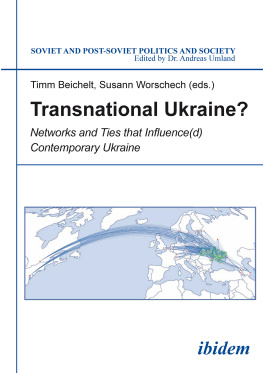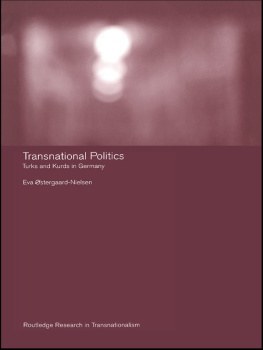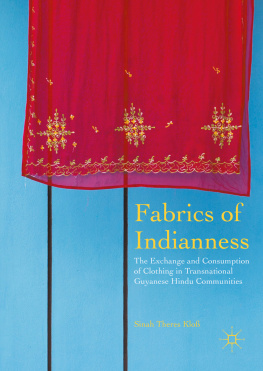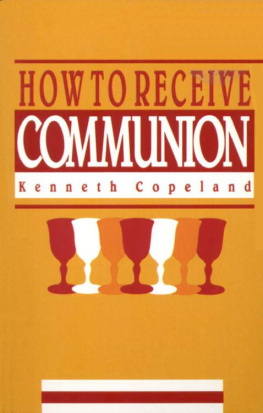Compaeros
Two Communities in a Transnational Communion
Joe Gatlin, Nancy Gatlin, and Joel H. Scott
Compaeros
Two Communities in a Transnational Communion
Copyright 2017 Joe Gatlin, Nancy Gatlin, and Joel H. Scott. All rights reserved. Except for brief quotations in critical publications or reviews, no part of this book may be reproduced in any manner without prior written permission from the publisher. Write: Permissions, Wipf and Stock Publishers, 199 W. 8th Ave., Suite 3, Eugene, OR 97401.
Wipf & Stock
An Imprint of Wipf and Stock Publishers
W. th Ave., Suite
Eugene, OR 97401
www.wipfandstock.com
paperback isbn: 978-1-5326-1981-6
hardcover isbn: 978-1-5326-1983-0
ebook isbn: 978-1-5326-1982-3
Manufactured in the U.S.A. January 24, 2018
Vamos Todos al Banquete by Guillermo Cullar Copyright 1988 , GIA Publications, Inc.All rights reserved. Used by permission.
Photo Credits IntroductionDawn Noelle Smith Beutler Chapter Joe Gatlin Chapter David Janzen Chapter Joe Gatlin Chapter Joe Gatlin Chapter Joe Gatlin Chapter Dawn Noelle Smith Beutler Chapter Dawn Noelle Smith Beutler Chapter Joe Gatlin Chapter Rodrigo Godoy
Table of Contents
To the memory of Jorge Molina,
A friend and facilitator of our transnational communion,
and Executive Director of Habitat for Humanity El Salvador for eighteen years
Preface
W e were several years into writing this book before we discovered what we were doing.
At first we thought we were helping a community of Salvadoran campesinos (fieldworkers) capture their history in written form. Their breath-taking and tragic account of fleeing their country with government death squads literally on their heels needs to be told and preserved in circles much larger than just those of their small community in El Salvador known as Valle Nuevo of Santa Marta. Their stories include generations of subjugation on the estancias (ranches) of the northern department of Cabaas, a night-time flight along rocky, mountain paths in 1981 , the massacre at the Lempa River as they tried to reach safety in Honduras, their growth in solidarity despite destitution and disease through eight years in United Nations sponsored refugee camps in Honduras, and the return to their homeland in 1989 as a disenfranchised yet determined people.
It is a remarkable saga, and the elders of their community tell it with pathos and conviction. Their accounts are replete with vivid images of a bullet-ridden chair, a shrapnel garden, a pillar of light that led them in the night, a base community reading Scripture in a hidden cave, a teacher with only a second-grade education, a champion high-school swimmer who magically appeared when they were trying to cross the swollen river, and Christ hanging on the cross of free trade. Since their repatriation, they have built a community in the Salvadoran countryside and persevered through hunger, depression, death, mental illness, discrimination, alcoholism, illiteracy, the destruction of their farm-based economy by free trade laws, and the exploitation of their land by foreign corporations.
Our progress on the manuscript, however, was slow. Every year we found ourselves backing up and starting over as we tried to capture new concepts and insights discovered through our visits, phone calls, and adventures. With the passage of timeas we moved past the twenty-year anniversary of Shalom Mission Communities first visit to Valle Nuevoour relationship deepened and matured and our perspective changed, and we could not escape the feeling that we were missing something in our writing.
About four years ago, as the three of us sat in a Waco coffee shop musing over the reasons for our fits and starts, the realization hit us that the story we needed to tell was not just their story, but our story, the story of two communities, one in El Salvador and one in the United States, building a relationship. There was immediate clarity; writing about our relationship was what we should be doing. Several developments supported this new direction.
One, the elders of Valle Nuevo had become less desperate in sharing their experience of suffering and loss. Maybe the turning point had come after the hundredth re-telling. It seemed they had relaxed and begun, albeit slowly, the process of healing from the trauma. Their offspring had embraced their history and made it their own. Their friends from the north were not going away; year after year they were returning and still listening. And there was a locally organized effort underway to capture and preserve their oral history.
A second reason for shifting the focus was that those of us from the United States were better able to articulate what this relationship meant to us. We realized the story we told about our friendship with the Salvadorans was about our own transformation. We were not in this relationship to record a deed of mercy or to set right a wrong, but instead to find forgiveness, wholeness, and redemption for ourselves.
A third reason, we had found it is just not easy to describe this experience to others. Those of us from the north are asked, Why are you going to El Salvador again? Whose pictures are these on your wall? Standard categories of north-south encounters are short-term mission or exposure trips with relief, development, or study as an objective, but none of these apply. We struggle to find a way with just a few words to explain our relationship and justify the effort and expense we invest in it.
Conversely, our friends from Valle Nuevo also have told us of their difficulties. They are often asked, Who are these gringos that keep showing up? Why are they so special to you? Their answer that they are friends and practically family is met with quizzical looks and outright skepticism. So, with stories and reflections, we attempt in Compaeros to paint a picture that can better explain this relationship weve come to call our transnational communion.
While we do commend this type of relationship to others, we are quick to say we have not created a how-to-manual for other communities south or north. It was never our intention to do so. There are no checklists, no sequenced steps, no articulated theory of change, no benchmarks, no measures of success provided herein. For those who are interested we have just these few pieces of advice: ) resist evils power to draw boundaries, create borders, and dig chasms in this world; ) listen to the Holy Spirit; ) work out your own salvation with fear and trembling (Phil :).
And we offer a blessing and hope, Christ prepares a table where language, culture, and national politics no longer have the power to divide.
How This Book Was Written
Through the decades many individuals from Shalom Mission Communities have written and shared journal entries and articles about their trips to Valle Nuevo and reflections about the rare occasions when campesinos have been able to visit the Shalom communities stateside. Most of these pieces have appeared in Shalom Connections, our associational newsletter that is available on the Shalom Mission Communities website. In keeping with the Shalom Mission ethos, we have treated these intellectual perspectives and spiritual insights as communal property. Direct quotes and excerpts are credited within. Special acknowledgement is given to Dawn Noelle Smith Beutler of Church of the Sojourners and David Janzen of Reba Place Fellowship for contributions to the text of the book.













